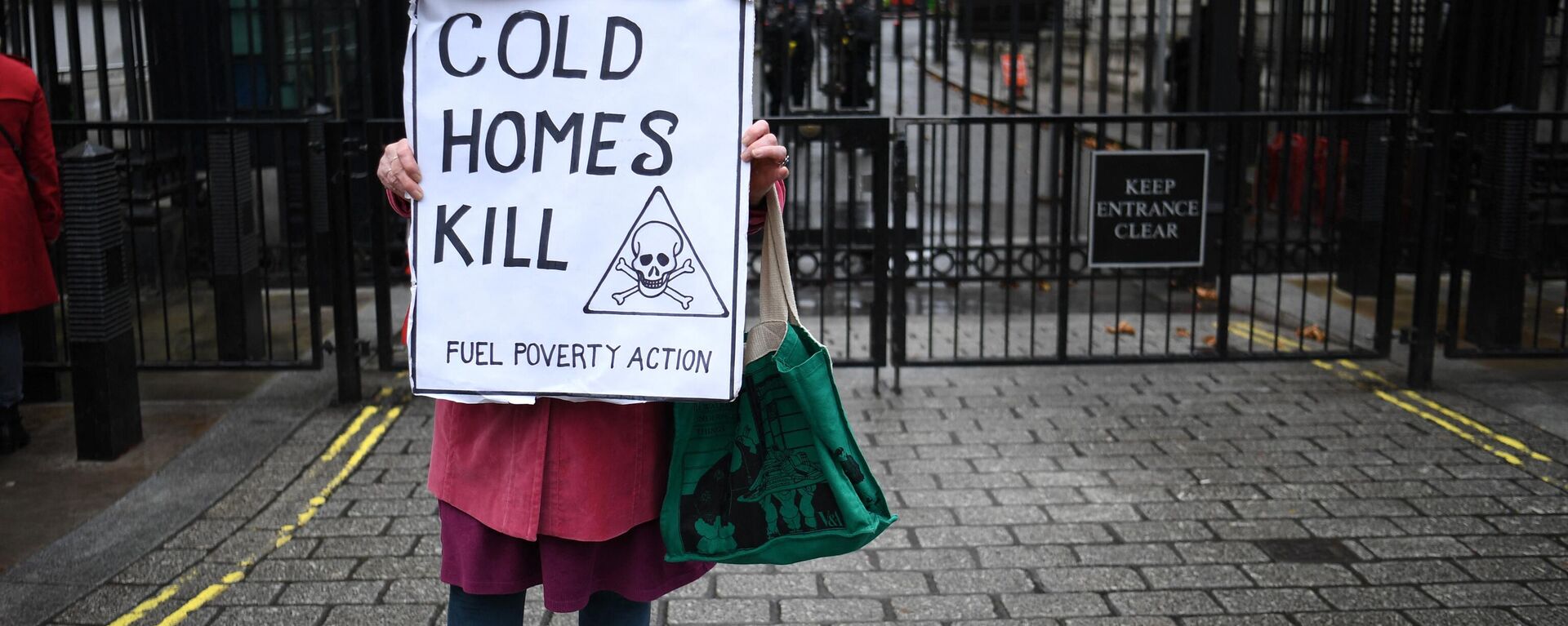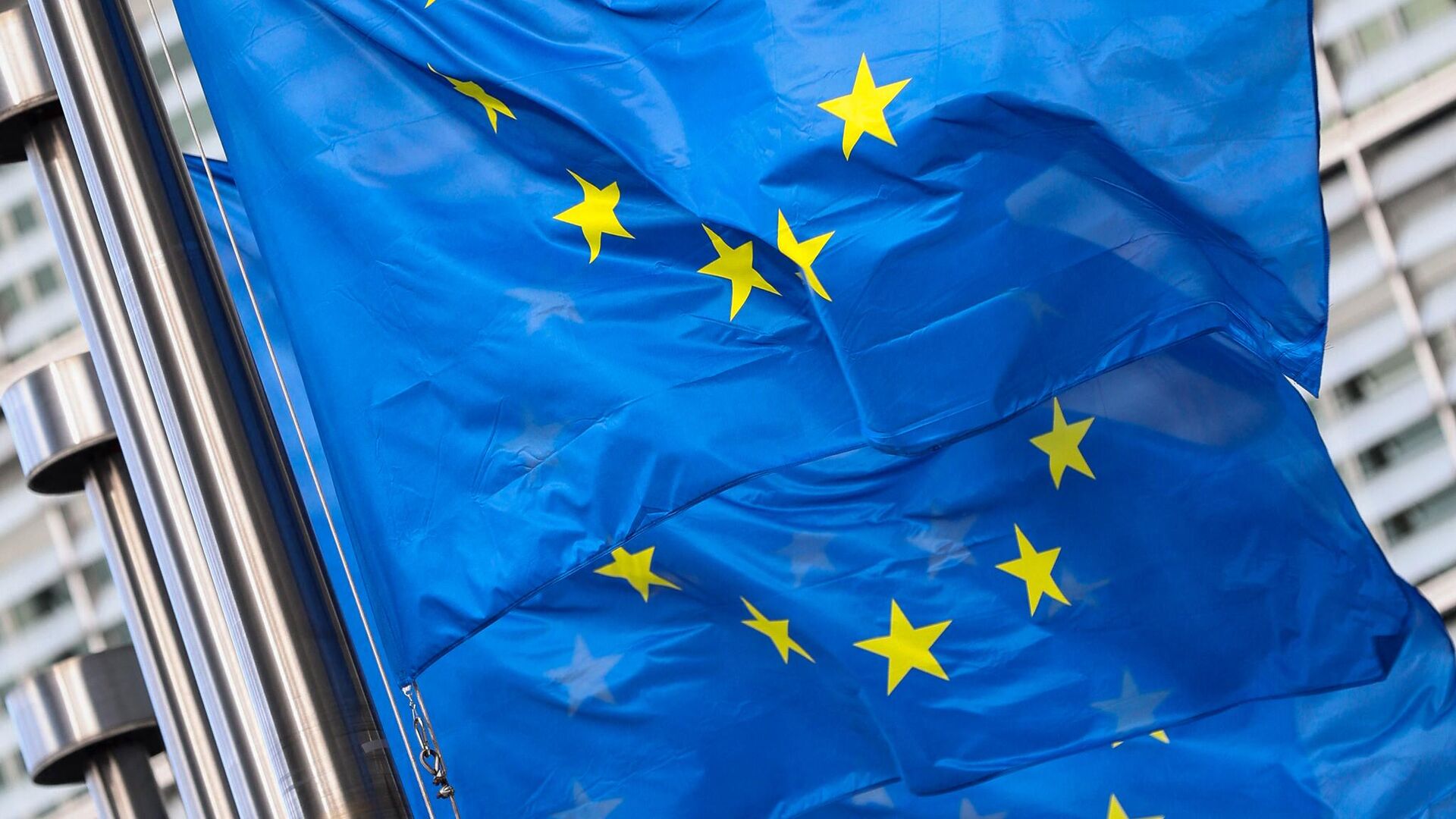https://sputnikglobe.com/20230204/eu-provides-for-55-day-transition-period-as-part-of-new-price-cap-for-russian-oil-products-1106975014.html
EU Provides for 55-Day Transition Period as Part of New Price Cap for Russian Oil Products
EU Provides for 55-Day Transition Period as Part of New Price Cap for Russian Oil Products
Sputnik International
The European Union has set a 55-day transition period for Russian petroleum products bought above the price cap, introduced on Friday by the bloc itself, G7 and Australia.
2023-02-04T12:31+0000
2023-02-04T12:31+0000
2023-02-04T12:51+0000
energy crisis in europe
europe
european union (eu)
2022 russian oil price cap
https://cdn1.img.sputnikglobe.com/img/07e7/01/1b/1106769431_0:960:2048:2112_1920x0_80_0_0_9d220842d2124003fb8fecd2bc0cddea.jpg
On Friday, the EU said it was introducing a price cap for Russian oil products, together with G7 and Australia, at $100 per barrel for premium-to-crude products (such as diesel and kerosene) and $45 for discount-to-crude products (such as naphtha). The price cap on petroleum products from Russia will be implemented from Sunday, the European Commission said in a statement on Saturday, adding that there would be a transition period. On February 5, the EU's ban on import of Russian petroleum products, approved as part of a last year's sanctions package, will also take effect. The price cap bars EU companies from providing services, including technical assistance and financing, among others, to transport Russian petroleum products to third countries above the limit. Western countries have been seeking ways to limit Russia's income from oil and gas exports, as well as their dependence on Russian fuel since the country launched a military operation in Ukraine on February 24. On December 5, the European Union placed a price cap of $60 per barrel on Russian crude oil, joined by the G7 nations and Australia. In late December, Russian President Vladimir Putin signed a decree banning supplies of Russian oil and petroleum products if contracts directly or indirectly provide for a price cap. According to Kremlin spokesman Dmitry Peskov, the Russian president did not consult with OPEC+ allies before signing off on the response measures.
https://sputnikglobe.com/20221223/1105722929.html
Sputnik International
feedback@sputniknews.com
+74956456601
MIA „Rossiya Segodnya“
2023
Sputnik International
feedback@sputniknews.com
+74956456601
MIA „Rossiya Segodnya“
News
en_EN
Sputnik International
feedback@sputniknews.com
+74956456601
MIA „Rossiya Segodnya“
Sputnik International
feedback@sputniknews.com
+74956456601
MIA „Rossiya Segodnya“
energy crisis in europe, price cap on russian oil, price cap on russian petroleum, russian hydrocarbons
energy crisis in europe, price cap on russian oil, price cap on russian petroleum, russian hydrocarbons
EU Provides for 55-Day Transition Period as Part of New Price Cap for Russian Oil Products
12:31 GMT 04.02.2023 (Updated: 12:51 GMT 04.02.2023) MOSCOW (Sputnik) - The European Union has set a 55-day transition period for Russian petroleum products bought above the price cap, introduced on Friday by the bloc itself, G7 and Australia.
On Friday, the EU said it was
introducing a price cap for Russian oil products, together with G7 and Australia, at $100 per barrel for premium-to-crude products (such as diesel and kerosene) and $45 for discount-to-crude products (such as naphtha).
The price cap on petroleum products from Russia will be implemented from Sunday, the European Commission said in a statement on Saturday, adding that there would be a transition period.
"It includes a 55-day wind-down period for seaborne Russian petroleum products purchased above the price cap, provided it is loaded onto a vessel at the port of loading prior to 5 February 2023 and unloaded at the final port of destination prior to 1 April 2023," the statement read.
On February 5, the EU's ban on import of Russian petroleum products, approved as part of a last year's sanctions package, will also take effect.
The price cap bars EU companies from providing services, including technical assistance and financing, among others, to transport Russian petroleum products to third countries above the limit.

23 December 2022, 14:29 GMT
Western countries have been
seeking ways to limit Russia's income from oil and gas exports, as well as their dependence on Russian fuel since the country launched a military operation in Ukraine on February 24. On December 5, the European Union placed a price cap of $60 per barrel on Russian crude oil, joined by the G7 nations and Australia.
In late December, Russian President Vladimir Putin signed a decree banning supplies of Russian oil and petroleum products if contracts directly or indirectly provide for a price cap. According to Kremlin spokesman Dmitry Peskov, the Russian president did not consult with OPEC+ allies before signing off on the response measures.



